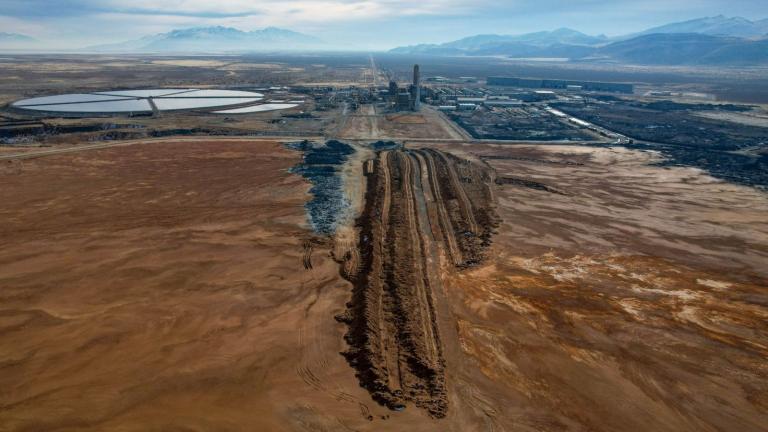Ben Tuxworth, communications director at Forum for the Future, writes a monthly column for Gristmill on sustainability in the U.K. and Europe.
Debates about how we should save the planet tend to explore the impossibility of almost every approach until someone says, “We need to change the education system,” at which point it is deemed churlish to snigger. Catch ’em young, and it’s job done seems to be the hope. Well, with only 100 months of planet-saving time left, according to Greenpeace, this approach has worked as much as it is ever likely to. So, are the young going to save us?
Fresh perspective comes from the Future Leaders Survey, a scan of 25,000 applicants to U.K. universities and colleges published last month. The survey, carried out by Forum for the Future and UCAS (the central admissions service for higher education in the U.K.), paints a picture of young Brits facing a fairly terrifying future with an odd mixture of denial, irritation, and pragmatism.
Asked about likely outcomes for humanity by 2032, the responses are gloomy to say the least. Nine out of 10 surveyed think Africa will still be starving and oil will be prohibitively expensive, and eight in 10 expect more terrorism and the effects of climate change to be hitting hard. Inequality within the U.K. and between rich and poor nations will have worsened, according to around 70 percent of those surveyed. Half expect nuclear weapons will have been used again and that the U.S. will still be in Iraq.
Survey-takers blame pretty much everyone: business, the media, government, and celebrities are all found wanting. Most look to government and business for a solution, but despite the frenzied output of Corporate Social Responsibility-style communications from businesses to U.K. consumers in the last year, only 6 percent of the future leaders think they’re doing “a lot,” compared to 10 percent for individuals and 16 percent for government. Fifty percent think business is doing very little or nothing to create change. As you’d expect — or maybe hope — they don’t think much of the current crop of British leaders. Gordon Brown and conservative leader David Cameron are both dismissed as not serious on climate change by nearly eight out of 10 respondents, something of a blow for Cameron, who is trying to break through to a younger generation of potential conservatives with a stronger green offer. Though most of them think humanity will make it through another century, 78 percent think lifestyles will have to change dramatically, and material consumption in particular will have to be reduced.
So far so good, but what are they going to do about it? “A bit” seems to be the answer. Though the survey explores how the respondents expect the coming environmental crisis to affect all sorts of choices: from number of children to choice of job, their attitudes toward transportation are perhaps most revealing. Two-thirds already claim to be walking and cycling instead of driving, at least sometimes. More than half claim to buy locally produced food to avoid all of those food miles. And as you’d expect, they’re fashionably down on both flying and SUVs, with two-thirds thinking that banning SUVs from city centers would be beneficial, and 40 percent feeling the same way about taxing aviation more heavily. But asked if they had or were planning to cut down on air travel for environmental reasons, only 7 percent have, and only 16 percent anticipate doing so in the next 10 years. Eighty-two percent want to visit exotic places before they disappear — no prizes for guessing how they’ll get there.
Results like these are perplexing for the growing brigade of green marketers in Britain, who are tracking surveys of consumer attitudes with growing excitement. Certainly, ethical brands have captured astonishing levels of market share in the U.K. in the last two years, and, as ever, behavior changes lag behind shifts in attitude. But the worry is that a generation of consumers is shifting straight from ignorance to something akin to despair on the big environmental questions. The anti-ethical consumption backlash may not be far round the corner, particularly as the U.K. enters a recession and some of those choices that seemed right and proper suddenly look a bit expensive.
But a healthy dose of skepticism about the role of business in particular may not be a bad thing. One item that stands out in these results is the sense that, though young Brits may struggle to change their own behavior, they seem ready to be coerced into changing it, agreeing on several questions that unpalatable choices for them might well be good for society as a whole. And it’s government that they expect to coerce them. A widely held perception amongst the CSR community in the U.K. is that government trails business, and business trails consumers, in terms of their willingness to change unsustainable behaviors. It’s high time for government to catch up, and in a period of economic downturn with business perhaps becoming more introspective, there should be ample opportunity for the public sector — and government in particular — to take up a leadership position.


